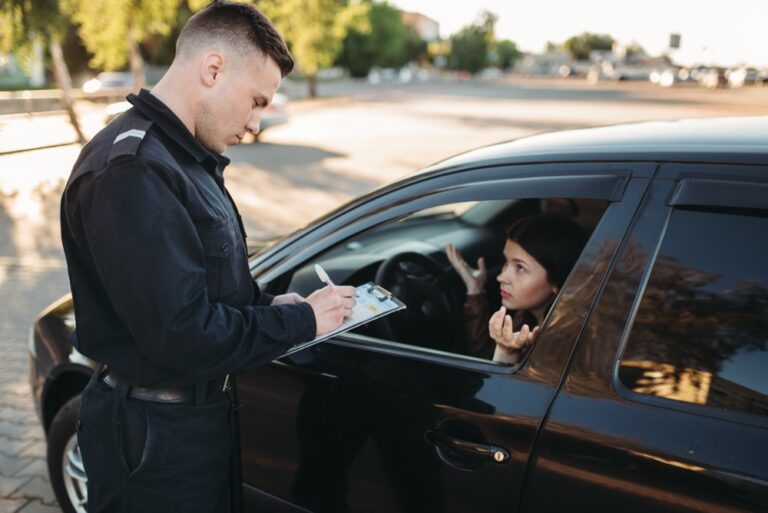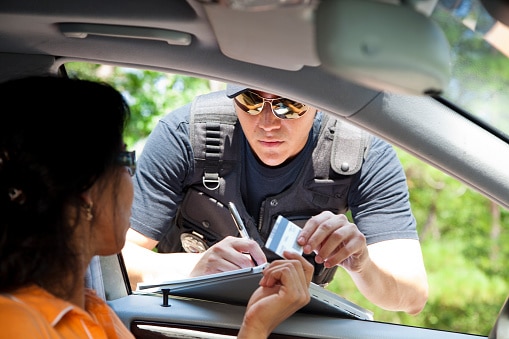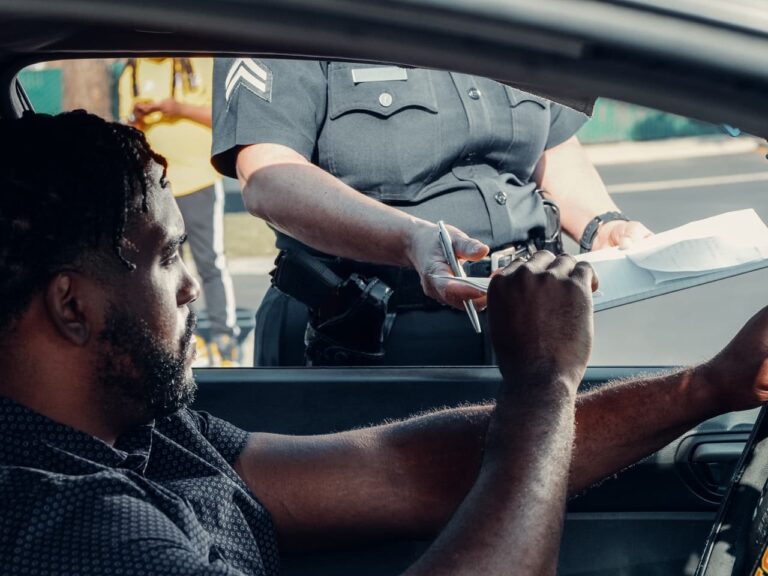Now that it seems the summer weather is here to stay, the next obvious step is cottage season! With the passing of our first long weekend, the next few months are sure to be full of summer road trips, cottage weekends and days out on the lakes. With all the delights that summer sunshine brings, less happy circumstances can follow. Don’t turn a blind eye to the small details that police officers might look for, or shoddy shortcuts you might take to get away from the city as fast as possible. With the promise of summer here, it’s important to stay vigilant and know what summer traffic tickets you can receive.
Distracted driving on the 400s
The 400 series of highways has the most traffic in North America, and when it passes through Toronto is becomes the 3rd most congested highway in the world. Now combine that with the fact that distracted driving is the leading cause of fatal collisions in Ontario, and you can bet your bottom dollar that police will always keep an eye on these 1925 km stretches of concrete and asphalt.
The OPP does run distracted driving campaigns (most recently over the long weekend) but it is important to stay alert and focused at all times, on all roads. Distracted driving can include anything from texting or talking on cellphone, munching on some snacks, personal grooming or attending to children in the back seat. All of these activities can lead to a number of charges. The spectrum can be anywhere from failing to drive in a marked lane, driving with a handheld communication or entertainment device, and all the way up to careless driving, depending on the circumstances.
The most common of these charges, which is what police are looking for, is using your handheld device. As of March 18, 2016 the fine for driving with a handheld communication or entertainment device, upon conviction, has jumped to $400 – $1000 and carries 3 demerit points.
So basically, prepare for your journey ahead of time, and if you need a snack, to make a call or help your child with something, find a safe place to pull over and do so – safely!
Post winter maintenance
The winter season can be rough on your vehicle, so it’s important to keep it in tip top shape if you’re going to be travelling the roads for your vacation.
Keep your car well maintained and clean! Regular washes and waxes will keep the paint and body of your car protected, especially considering the salt used on the roads in the winter.
Follow the suggested tune up dates. Oil changes and transmission checks and other routine services will keep your car in good working order.
Chipped or cracked windshields, burnt out tail lights, battered mufflers, all of these will not only decrease your vehicle’s lifespan, but will also be indicators for police. An officer can pull you over if he deems externally that your car is not safe, or defective in some way. You must submit your car for inspection and any other tests the officer might determine necessary to prove or disprove its safety. You can get a traffic ticket for your car not being in the proper condition and if the officer finds a number of defects, your car can even be pulled off the road.
Trailer safety
Summer is prime time for those trips up to the cottage, moving and many other jobs that require towing some extra freight. If you’re towing any kind of trailer it’s imperative that you have it hooked up properly, and the objects you’re towing are also secured properly.
To be clear, “trailer” means a vehicle that is drawn on a highway by a motor vehicle. It does not include a mobile home, another motor vehicle being towed, or farm equipment. A trailer cannot be used to carry people – you can’t throw your kids back there if they’re being too noisy. It is considered a separate vehicle from the one that is towing it.
So, to make sure you don’t have any extra hassle added to towing your trailer, here are some things to remember:
Permits:
- You must have a permit for your trailer
- You must have a licence plate on the trailer that is displayed properly, that shows the number of the permit issued to the trailer
- Any valid driver’s licence means you can tow a trailer as long as the combined weight of trailer and motor vehicle do not exceed 4,600 kg. If the combined weight is more than that, you need an oversize vehicle permit, which are available at some Service Ontario locations.
Equipment
- Your trailer must have a white licence plate light, at least one red tail light and two red reflectors at the rear of the trailer, as far apart as possible. This light must be visible during poor weather conditions and at night.
- Your trailer must have mud guards, fenders and flaps, or be designed in a way that you are not spraying traffic behind you.
- You have to have a clear view of the road to the rear. If your load blocks your vision, have additional mirrors that offer a clear view.
- The brakes on your vehicle must be sufficient to stop and hold the trailer
- You must have at least one red light on the rear of the trailer for
- You must have electric or mechanical signalling devices that can clearly indicate your turns and stops. They must be able to light up in poor weather and at night
Load Requirements
- Make sure everything is strapped down properly. It is an offence to have a load that may become dislodged or fall off.
- Don’t overload your trailer, it can put weight on your vehicle tires that can damage them
- Balance your load: if too much weight lays in the back of the trailer, it can fishtail, sway or become detached from the hitch.
- If your load is heavy, it can affect the aim of your headlights, having your low beams blind other drivers, or affect where your mirrors reflect. Make sure you adjust properly for all conditions.
Above all this summer, be safe. Follow the rules of the road, and you can have not only an awesome summer, but a safe one as well.
Every situation is different. Remember you have a right to fight your ticket. At Bulwark Legal Services we provide free consultations. You can go to our website and send us a copy of your ticket. We will help you decide the right course of action to take.



